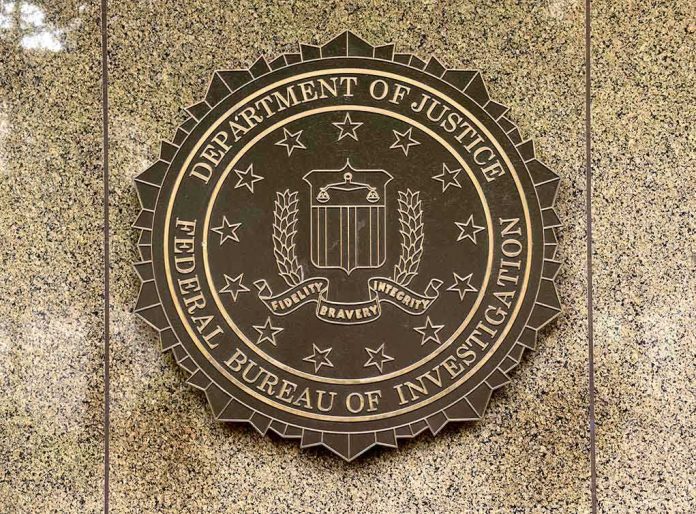
FBI’s massive crackdown on the Anti-Tren Gang has exposed a brutal migrant criminal network led by former members of Venezuela’s notorious Tren de Aragua, with 16 arrests made in Houston marking the organization’s largest takedown to date.
Key Takeaways
- The FBI has arrested 16 members of the Anti-Tren gang in Houston, with 14 charged with cocaine distribution conspiracy and two facing weapons charges.
- Anti-Tren is comprised primarily of former members of the Venezuelan Tren de Aragua gang, engaging in violent turf wars, drug trafficking, and weapons offenses.
- The arrests are linked to a Houston sports bar mass shooting that injured six people, allegedly perpetrated by a Venezuelan illegal immigrant.
- The operation is part of President Trump’s “Operation Take Back America” initiative targeting transnational criminal organizations.
- If convicted, suspects face potential life imprisonment and fines up to $10 million for drug offenses.
Venezuelan Gang Violence Spills Onto American Streets
The Federal Bureau of Investigation has executed its largest operation against the Anti-Tren gang, arresting 16 members in Houston as part of a broader effort to combat migrant gang violence. This criminal organization, comprised almost exclusively of former members of the Venezuelan Tren de Aragua (TdA) gang, has been linked to numerous violent crimes throughout Houston, including a mass shooting at a local sports bar that left six people wounded. The arrests mark a significant victory in President Trump’s campaign against transnational criminal organizations operating within the United States.
The operation targeted suspected gang members involved in cocaine distribution and weapons offenses. According to court documents, 14 of those arrested face charges for conspiring to distribute over five kilograms of cocaine, while two others face separate weapons charges. Jose Miguel Briceno, identified as the alleged shooter in the Latinas Sports Bar incident in March 2025, was among those apprehended. The violence is believed to be part of an ongoing turf war between Anti-Tren and TdA members fighting for control over criminal enterprises in the Houston area.
Your FBI arrested 16 suspected Anti-Tren gang members in Texas in the largest bust yet. And our violent crime takedown this summer isn’t stopping any time soon. pic.twitter.com/2BB4t5iQB8
— FBI Director Kash Patel (@FBIDirectorKash) July 2, 2025
Origins of a Dangerous Transnational Threat
The Anti-Tren gang emerged from the much larger and more established Tren de Aragua, Venezuela’s most powerful prison gang. TdA originated from workers’ unions and expanded its influence from Tocorón Prison under the leadership of Héctor Rutherford Guerrero Flores, known as “Niño Guerrero.” With an estimated membership exceeding 4,000, TdA has become the first Venezuelan criminal organization to successfully expand its operations across Latin America and into the United States, particularly in Texas.
“Anti-Tren is a criminal organization almost exclusively comprised of former members and associates of Tren de Aragua (TdA),” stated the U.S. Attorney’s Office.
The FBI has placed a $3 million bounty on Giovanni Vicente Mosquera Serrano, the alleged second-in-command of TdA. Both President Trump and Texas Governor Greg Abbott have designated TdA as a foreign terrorist organization, highlighting the severity of the threat posed by these criminal networks. TdA is known for execution-style murders and sex trafficking operations, with its criminal enterprises extending into drug and weapons trafficking across multiple states.
Operation Take Back America
The recent arrests in Houston form part of President Trump’s “Operation Take Back America,” a comprehensive national security initiative aimed at securing the border and eliminating transnational criminal organizations. The operation is being prosecuted by the U.S. Attorney’s Office and the Department of Justice’s Joint Task Force Vulcan (JTFV), demonstrating the administration’s commitment to addressing both illegal immigration and violent crime simultaneously. Those charged with drug offenses face potential life imprisonment and fines up to $10 million, while firearms charges could result in up to 15 years behind bars.
“These arrests are the largest takedown of suspected Anti-Tren members and associates by the FBI, so far, and they happened right here in Houston. These individuals are accused of engaging in a turf war with TdA members and carrying out numerous violent crimes throughout our city, including a mass shooting at a local sports bar that left six people wounded. Fortunately, for the good and safety of our community, these individuals are now in federal custody facing U.S. justice,” said Douglass Williams, Special Agent in Charge of the FBI Houston Field Office.
U.S. Attorney Nicholas J. Ganjei emphasized the dual priorities of the operation: “The Southern District’s twin priorities are securing our border and the eradication of violent crime. This case implicates both.” The Department of Justice describes the initiative as “a nationwide initiative that marshals the full resources of the Department of Justice to repel the invasion of illegal immigration, achieve the total elimination of cartels and transnational criminal organizations and protect our communities from the perpetrators of violent crime.”
Tightening the Net on Migrant Gangs
Law enforcement efforts to combat these violent criminal organizations have intensified under President Trump’s administration. Recently, authorities announced the arrest of 2,700 alleged members of the Tren de Aragua gang across the United States. The successful operation against Anti-Tren demonstrates the government’s commitment to dismantling these criminal networks piece by piece. Texas law enforcement agencies have been particularly focused on identifying and apprehending gang members based on distinctive tattoos, clothing, and other identifying markers.
Despite these successes, the challenge remains significant. The FBI notes that TdA operates with a “decentralized” structure that makes it difficult to eliminate entirely. As more Venezuelan migrants have entered the United States in recent years, law enforcement has been increasingly vigilant about the potential for criminal elements to exploit the immigration crisis. The administration’s targeted approach combines border security with aggressive prosecution of known gang members, addressing both the symptoms and causes of transnational criminal activity affecting American communities.













